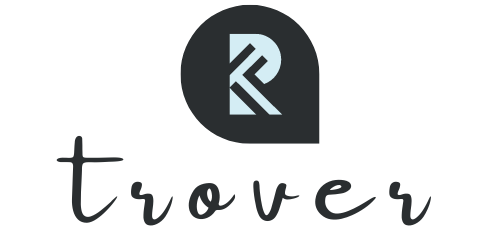In your 40s, the journey to parenthood can present unique challenges. As the body naturally changes reproductive health, the process of conceiving becomes more intricate compared to younger years. This article aims to clarify misconceptions and provide effective strategies to enhance your chances.
It caters to both first-time parents and those encountering new obstacles in conception. Understanding the specific challenges of this age group is crucial in navigating towards successful outcomes in starting or expanding your family.
Understanding Age and Fertility
With advancing age, both the quality and quantity of eggs decline, affecting the likelihood of conception. Common myths suggest that assisted reproductive techniques can fully overcome the decline in reproductive capabilities associated with aging. These methods do provide avenues of hope, but they are not foolproof solutions.
Recognizing the limitations and potentials of these technological aids is vital in setting achievable goals and making informed decisions for individuals wishing to conceive after 40.
Medical Assessments for Fertility

Undergoing a comprehensive fertility evaluation is essential for individuals in their 40s. Tests measuring follicle-stimulating hormone (FSH) and anti-Müllerian hormone (AMH) offer insights into ovarian reserve. Additional assessments like pelvic ultrasounds and partner semen analysis play a critical role.
These diagnostic tools help in formulating targeted strategies and interventions, customizing the approach to each individual’s unique reproductive health situation. To give yourself the best chances for success please visit Zora Health.
Lifestyle Changes to Enhance Fertility
A balanced diet, rich in antioxidants, and a consistent, moderate exercise routine are fundamental in positively influencing reproductive health. Nutritional choices should include fruits, vegetables, whole grains, and lean proteins to optimize body functioning.
Quitting smoking and reducing alcohol consumption is also crucial, as these habits can negatively impact egg and sperm quality. Regular, stress-reducing activities like yoga and mindfulness meditation can further enhance reproductive health. These lifestyle adjustments, although small, can substantially increase the likelihood of conception, a consideration of paramount importance for individuals in their 40s.
The Role of Supplements and Vitamins
Nutritional supplements and vitamins like folic acid, Coenzyme Q10, Omega-3 fatty acids, and Vitamin D play supportive roles in enhancing reproductive health. While they can be beneficial, it’s essential to remember that they are supplements to, not replacements for, a healthy lifestyle and diet.
Over-reliance on these aids alone may lead to unmet fertility goals. Consulting with a healthcare professional is crucial to tailor a supplement regimen that aligns with individual health profiles, ensuring that any deficiencies are appropriately addressed without excessive intake.
Understanding and Tracking Ovulation
![]()
Understanding and tracking ovulation is essential in the conception process, especially in the 40s when ovulation can be less predictable. Techniques like charting basal body temperature, observing changes in cervical mucus, and using ovulation predictor kits can provide valuable insights into the fertility cycle.
Fertility apps also offer a convenient way to track and predict ovulation, helping to identify the optimal time for conception. Consistent tracking over time can reveal patterns in menstrual cycles, offering a more precise window for optimal fertility, a critical factor for those in their 40s.
Fertility Treatments: Options and Success Rates
In Vitro Fertilization (IVF) and Intrauterine Insemination (IUI) are common fertility treatments considered by many in their 40s. IVF involves fertilizing an egg outside the body and then implanting it in the uterus, while IUI involves directly inserting sperm into the uterus.
The effectiveness of these treatments varies, with factors like egg quality and ovarian reserve playing significant roles. Understanding the specific success rates and challenges of these treatments for older individuals is crucial, as it allows for realistic expectations and informed decision-making in the fertility journey.
Alternative Paths to Parenthood
For those in their 40s facing challenges in natural conception, alternative paths like adoption and surrogacy present fulfilling options. Adoption offers the opportunity to provide a loving home to a child in need, while surrogacy involves a surrogate carrying a pregnancy for the intended parents.
Both routes require careful consideration and can be emotionally and practically complex. However, they open up diverse avenues for creating a family, offering hope and joy to those who might struggle with traditional methods of conception.
The Role of Counseling and Support

Navigating the path to parenthood in one’s 40s can be a deeply emotional journey. The role of counseling and support during this time cannot be overstated. Professional counseling can provide tools for coping with stress, anxiety, and disappointment often associated with fertility challenges.
Support groups offer a community of individuals sharing similar experiences, providing a sense of belonging and understanding. This emotional support network is invaluable, offering both solace and practical advice, and aiding in maintaining mental and emotional health during this challenging period.
Financial Considerations in Fertility Treatments
Navigating the financial aspects of fertility treatments like IVF and IUI is an important part of the journey. These treatments can be costly, and it’s essential to understand all potential expenses. Investigating insurance coverage and inquiring about fertility treatment packages can offer some financial relief.
Exploring financing options, such as loans or payment plans, and researching grants or subsidies available for fertility treatments can also aid in managing these expenses. Considering less expensive treatment options or clinics can provide a more financially accessible path to parenthood.
Real Stories: Successes and Challenges
Sharing personal narratives from those who have faced the intricacies of starting a family after 40 provides a wealth of insight and perspective. These stories cover a broad spectrum of experiences, from joyful successes to challenging setbacks.
They not only offer encouragement and a realistic view of what to expect but also foster a community of empathy and shared experiences. Learning from these personal journeys can be incredibly empowering, offering hope and guidance to others on a similar path, and reminding them that they are not alone in their journey.
Conclusion: Embracing the Journey
To conclude, managing the path to parenthood in your 40s involves a comprehensive understanding of the available options, supportive resources, and resilience. Reflecting on the key points covered, such as medical evaluations, lifestyle adaptations, and exploring various paths to parenthood, equips individuals for this journey. Embracing this phase with positivity and an active approach is vital, bearing in mind the uniqueness of each individual’s experience.
Related Posts:
- How to Fix Neck Pain from Sleeping: Tried-and-True…
- Guide to 'In Transit' Shipping Status: Navigating…
- Marriage Visa Essentials: Navigating Your Path to a…
- How Long Is Too Long without Sex in A Relationship?…
- Navigating Teen Romance: Age Gaps, Dating Tips, and…
- The Best Way to Remember SOS in Morse Code -…







